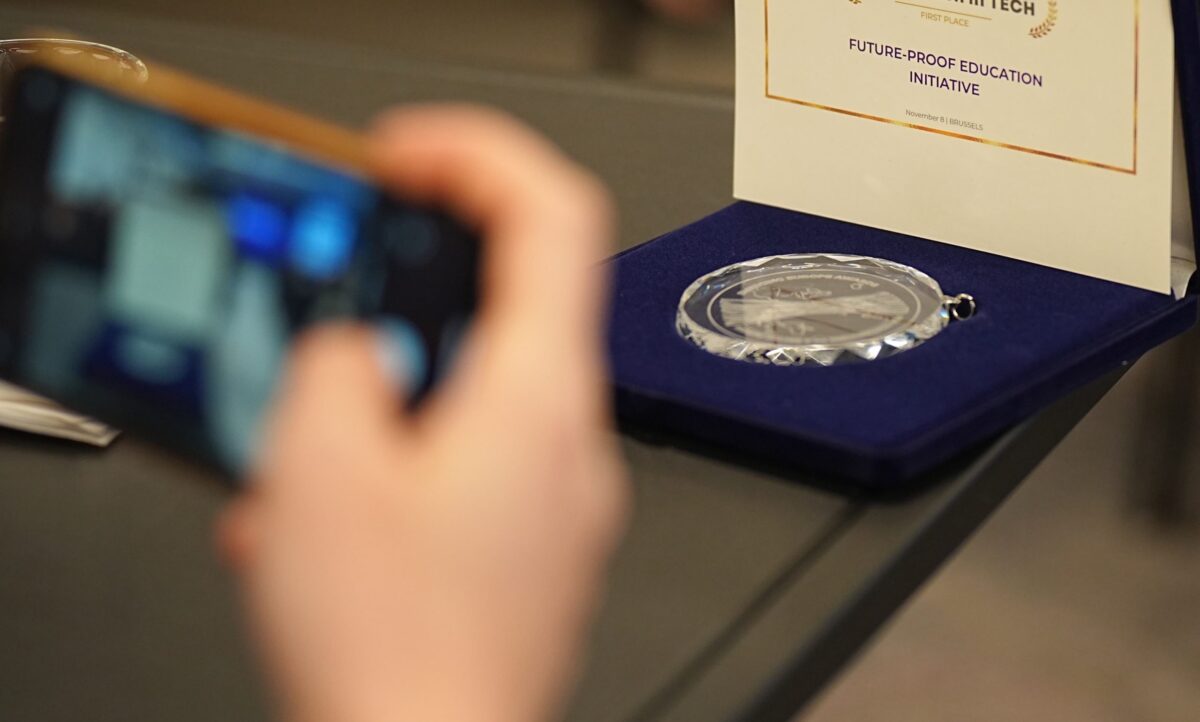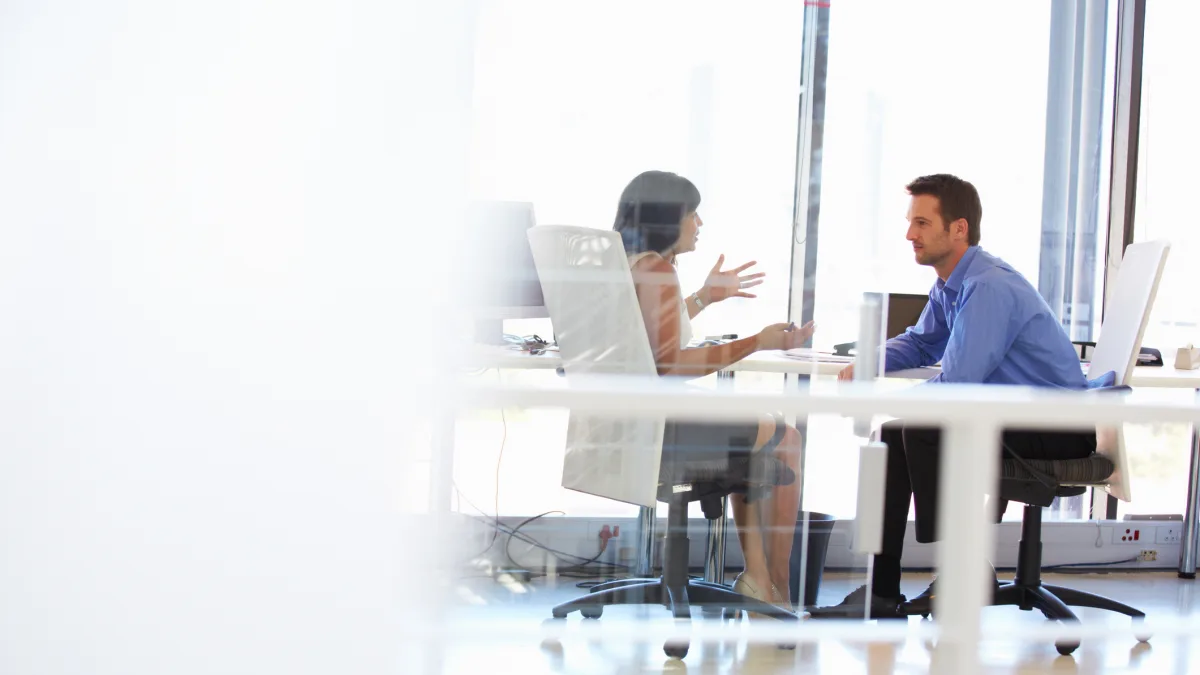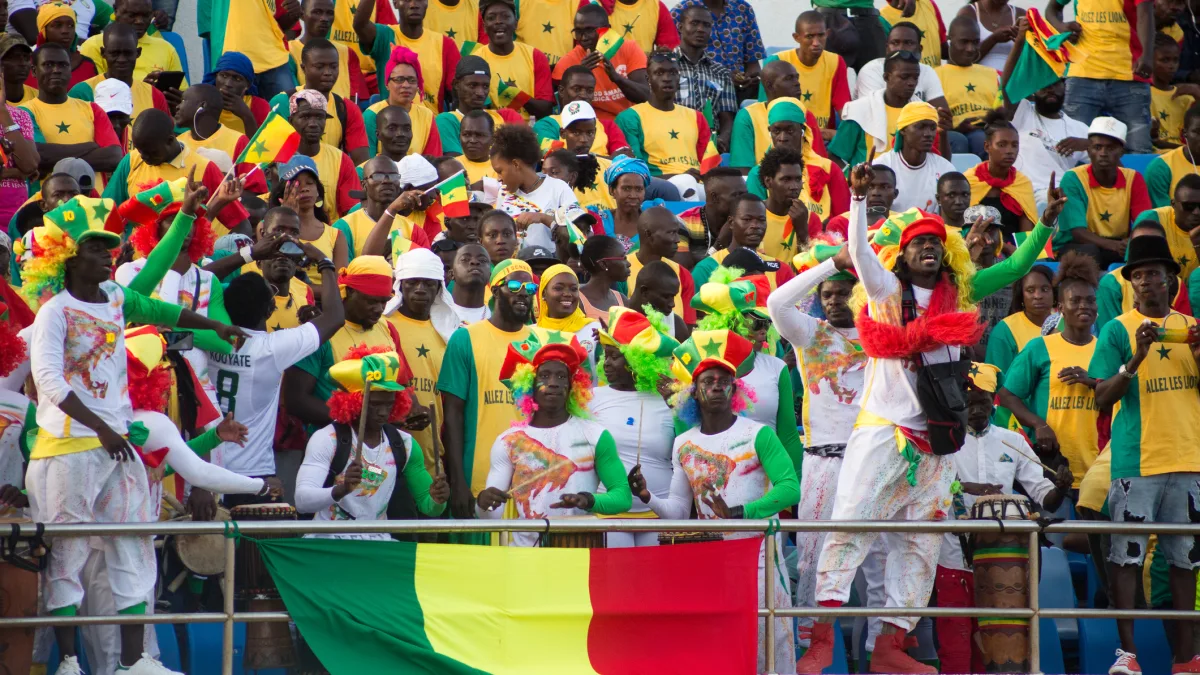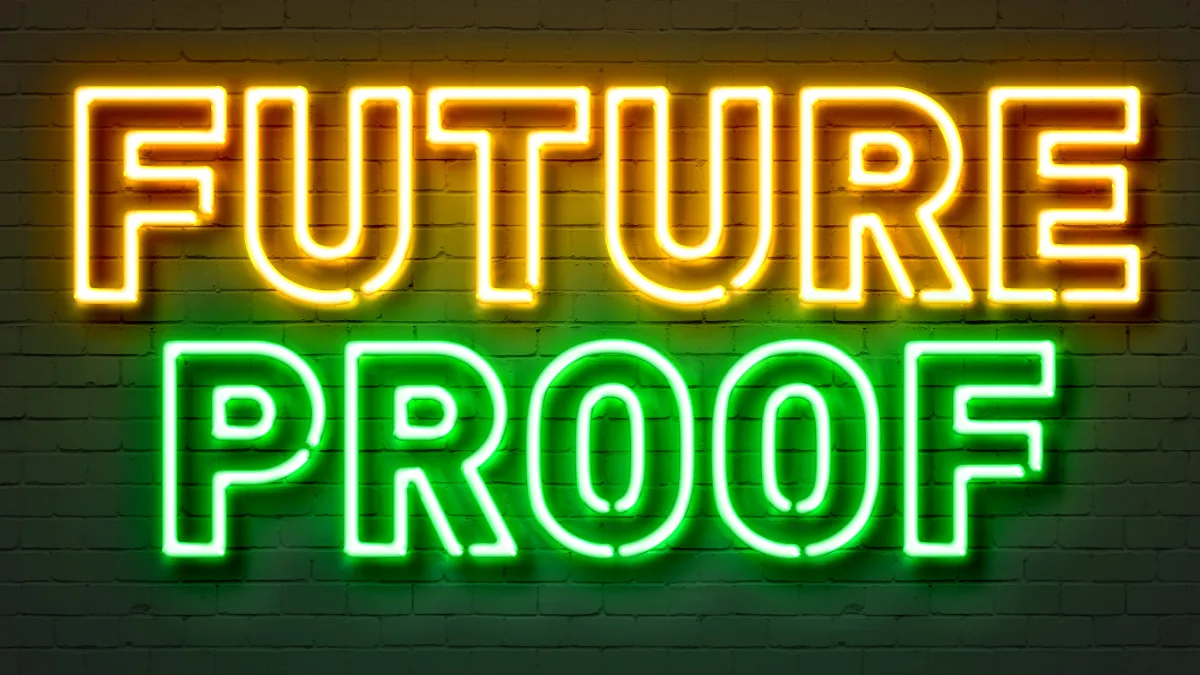Emerging Europe this week named the winners of its 2024 awards programme, the seventh edition of an initiative first launched in 2018 that highlights best practice, innovation, reinvention, and courage across the region.
As with previous years, winners were in chosen by a jury of experts and the global Emerging Europe community: in all more than 7,000 votes were cast for the various nominees.
Winners across the categories include Moldova’s Tekwill in Every School Programme, an initiative revolutionising education by embedding technology and STEM subjects into the core curriculum. It won in the Future-Proof Education category with 53 per cent of the jury vote, and 40 per cent of the public vote.
The initiative has not only reached thousands of students across the country but has also demonstrated measurable success in equipping the next generation with essential skills for the digital economy.
By creating a scalable and replicable model that bridges the gap between education and industry demands, it ensures long-term sustainability and relevance. Its emphasis on accessible, tech-driven learning positions it as a cornerstone for Moldova’s future workforce development and resilience in an increasingly digitalised world.
Second and third places were taken by region-wide Sustainable Digital Evolution: People First!, and Romania’s TEE Executive MBA & Shorter Executive Learning Programmes.
In Sustainability Leadership, the winner was Poland’s Clean Air Programme, for its impactful efforts in improving air quality and addressing climate change and making significant strides in reducing pollution and supporting citizens in transitioning to cleaner energy sources.
The programme, which won 53 per cent of the jury vote and 37 per cent of the public vote, aims to reduce emissions from residential heating by providing subsidies for the replacement of old coal-fired stoves with more efficient, environmentally-friendly heating systems. By 2023, the programme had helped thousands of households upgrade to cleaner technologies, contributing to a reduction in particulate matter and harmful pollutants.
Second and third places were taken by North Macedonia’s Interactive Map for Solar Power Plant Connections, and Slovakia’s Slovenské elektrárne.
In the Regional Collaboration category, the winner was Black Sea CONNECT (33 per cent jury vote, 46 per cent public vote), recognised for its transformative impact on marine sustainability, energy collaboration, and establishing a regional research hub that brought together over 50 stakeholders across countries bordering the Black Sea.
The hub focuses on key environmental challenges, such as sustainable marine resource management and clean energy solutions, driving regional cooperation and innovation. The project not only facilitated the sharing of knowledge and best practices but also resulted in the development of new technologies and policies aimed at preserving the Black Sea’s ecosystem while promoting sustainable energy use.
With the continued engagement of diverse stakeholders, the initiative is paving the way for a more resilient and environmentally-conscious Black Sea region.
Second and third places were taken by the EU’s Cities Mission for Climate Neutrality, and the Three Seas Initiative Investment Fund (3SIIF).
There was another Moldovan winner in the Public Sector Digital Transformation category: the app EVO for consolidating Moldova’s public digital services into a single, user-friendly app.
EVO (60 per cent jury vote, 51 per cent public vote) transforms how citizens interact with government processes, addressing fragmentation and inefficiencies in the delivery of public services. In 2023, during its Alpha phase, the app achieved over 50,000 downloads and simplified access to services ranging from healthcare to taxation, demonstrating tangible benefits in convenience and accessibility.
Second and third places were taken by Ukraine’s Diia.Education and Estonia’s Online National Elections.
The Democracy and Rule of Law award went to the Central and Eastern European Special Fund (47 per cent jury vote, 56 per cent public vote) for its outstanding contribution to fostering youth exchanges and promoting democratic values, and having played a pivotal role in strengthening ties between France, Germany, and Central and Eastern European countries.
Established by the Franco-German Youth Office (FGYO), the fund supports innovative, pro-European projects that address current socio-political challenges. In 2023, the fund facilitated numerous trilateral youth exchanges and training courses, empowering young Europeans to actively engage in democratic processes and contribute to a cohesive European society.
Second and third places were taken by Serbia’s Opening of the Parliament for the Initiatives of CSOs and Citizens, and the Engaging Central Europe Project.
Individual awards
The list of individual award winners is led by Ukrainian Anna Bondarenko in the Entrepreneurship category for her visionary leadership in the health tech sector. She won 40 per cent of the jury vote and 52 per cent of the public vote.
Bondarenko has been instrumental in transforming healthcare delivery by developing innovative solutions that enhance accessibility and efficiency. Her work has helped bridge gaps in healthcare systems, providing smarter, more sustainable solutions that improve patient care.
Alexandru Govoreanu and Jan Kameníček were second and third.
Armenian Amalya Yeghoyan meanwhile was named the Female Business Leader of the Year (53 per cent jury vote, 24 per cent public vote) for her transformative efforts in empowering women through technology education, she has become a beacon of progress in Armenia.
By leading programmes that equip women, including displaced and marginalised individuals, with vital coding, business, and entrepreneurial skills, she has enabled many to achieve financial independence and stability.
Her unwavering advocacy for the role of technology in addressing poverty and inequality has inspired women across Armenia to pursue careers in high-tech fields, creating lasting social and economic change in the region.
Sasha Bezuhanova and Michaela Bakala, both also inspiring leaders, were second and third.
Special awards
The winners of two special achievement awards were decided by the Emerging Europe Council.
The first, the Princess Marina Sturdza Award, which is given to an individual from any walk of life in the emerging Europe region who has, throughout their career, contributed to the global recognition of the region with their outstanding work, went to Romanian film director Cristian Mungiu.
For two decades Mungiu has been reshaping perceptions of emerging Europe through authentic and thought-provoking cinema. His Palme d’Or-winning 4 Months, 3 Weeks and 2 Days and acclaimed works like Beyond the Hills have spotlighted the region’s struggles and resilience, fostering dialogue about its identity and future.
Beyond his films, he actively supports emerging talent, ensuring the region’s creative voices continue to thrive globally. His work exemplifies the transformative power of storytelling in redefining emerging Europe’s cultural and global image.
The second individual award, the Günter Verheugen Award is given to an individual from outside the region who has, throughout their career, contributed to its prosperity and peace.
This year’s winner is writer Robert D. Kaplan, for shaping global understanding of Central and Eastern Europe through his influential writing. His seminal work, Balkan Ghosts, illuminated the region’s history, struggles, and geopolitical significance.
In Europe’s Shadow and The Revenge of Geography, delved into the forces that shape the region from its tumultuous history to its geopolitical importance. His writing bridges the gap between academic analysis and accessible storytelling, fostering a deeper appreciation of the region’s significance on the global stage, inspiring dialogue and reshaping perceptions of its role on the world stage.
One final prize, announced earlier this year, is decided by Emerging Europe’s Editorial Board: the Public Figure of the Year award. This year, the Board named Georgian President Salome Zourabichvili as winner.

Architects of Tomorrow
For the second year in a row, Emerging Europe has also named 23 Architects of Tomorrow, a group consisting of 28 exceptional individuals—one for each country of emerging Europe and Central Asia.
These individuals come from diverse backgrounds and professions, including innovators, entrepreneurs, scientists, researchers, engineers, technologists, social activists, educators, artists, journalists, policy makers, environmentalists, and community builders.
Each of them contributes to shaping a better tomorrow for the region in their respective domains.
“This group of exceptional people represent the brightest and best of our diverse region,” says Craig Turp-Balazs, editor of Emerging Europe. “They are all committed to bringing about positive change in their home countries, often under difficult circumstances, while advocating for those countries on the global stage.
This year’s architects are:
Jona Rizvanolli (Albania) – for empowering refugee youth through coding and robotics, efforts which provide essential skills while fostering community and resilience. By combining education with social impact, they inspire inclusion and demonstrate the transformative role of technology in overcoming adversity.
Ashot Chilingaryan (Armenia) – for leading groundbreaking research on the connections between cosmic ray fluxes and atmospheric electric fields during thunderstorms. His work contributes to the global understanding of natural particle acceleration, advancing international research in high-energy astrophysics.
Natavan Hasanova (Azerbaijan) – for leading groundbreaking projects in the space industry, expanding satellite services and solutions across multiple continents. Her work has contributed to global advancements in space technology, positioning her as a key figure in fostering international collaboration and innovation.
Tania Marinich (Belarus) – for driving innovation and supporting entrepreneurs within the local start-up ecosystem, offering essential resources to those in exile. Her work fosters collaboration and promotes democratic values across international start-up communities.
Velma Šarić (Bosnia and Herzegovina) – for fostering reconciliation through programmes that help young people share their experiences from conflict zones, promoting healing and understanding. She has expanded these efforts to war-affected regions, including Ukraine and Syria, strengthening peacebuilding initiatives.
Vladimir Tzvetkov (Bulgaria) – for implementing innovative teaching methods that combine practical learning and interdisciplinary approaches to inspire the next generation of students. His educational strategies contribute to teaching by focusing on real-life applications and fostering critical thinking and creativity.
Ivan Mrvoš (Croatia) – for developing solar-powered smart street furniture that enhances public spaces. His innovative designs are contributing to smart city initiatives globally, with installations in over 60 countries, driving advancements in sustainable urban technology.
Ondřej Kania (Czechia) – for expanding private education by introducing international programmes that prepare students for global success. His work has reshaped the educational landscape by offering students the opportunity to engage in world-class curricula, empowering them to compete internationally.
Jaanus Tamm (Estonia) – for pioneering AI-driven innovations that enhance border security and surveillance, contributing to the advancement of critical global infrastructure. His work is transforming security protocols worldwide, positioning technology as a key force in ensuring safety across borders.
Zviad Tsetskhladze (Georgia) – for leading youth-driven protests that mobilised a new generation to defend democratic values and push for political reforms. His activism has inspired a global conversation on the role of young people in shaping the future of democracy.
András Péntek (Hungary) – for pioneering the use of AI-powered simulations to accelerate cancer drug discovery and development, offering groundbreaking approaches that improve efficiency in identifying viable therapies. His innovative platform has significantly advanced global drug discovery.
Gentiana Alija (Kosovo) – for leading energy transition by driving forward solar energy solutions and increasing women’s participation in decision-making roles within the energy and mining sectors, making a contribution to global clean energy efforts and gender diversity in male-dominated industries.
Aliya Bekmurzaeva (Kazakhstan) – for pioneering advancements in biosensor technology aimed at improving healthcare diagnostics. Her research integrates optical fibres with biosensors to detect disease biomarkers, pushing the boundaries of real-time diagnostics.
Aigerim Kazybaeva (Kyrgyzstan) – for strengthening public participation during times of uncertainty. These efforts have fostered greater civic engagement and support for communities in need. Even amid challenging circumstances, they inspire accountability and encourage active involvement in shaping the future.
Anne Sauka (Latvia) – for exploring the connection between humans and nature, inspiring meaningful change through sustainability, and promoting ethical frameworks for a better future. Her work fosters a deeper understanding of how philosophy can guide us toward harmony with the environment.
Giedrius Žebrauskas (Lithuania) – for advancing the digitisation of public services, fostering transparency and efficiency within municipal operations. His initiative supports global digital transformation by demonstrating how technology can empower communities and modernise governance systems.
Viorica Vanica (Moldova) – for developing self-therapy tools that enhance mental well-being through accessible digital solutions. Her platform promotes emotional resilience by offering innovative mental health support, empowering both individuals and organisations to manage stress and improve performance.
Milena Petrović (Montenegro) – for advancing personalised medicine through genetic research focused on improving psychiatric care. Her work fosters innovation in healthcare by promoting more effective, patient-tailored treatment solutions through international collaboration and modern medical practices.
Dejan Mihajlov (North Macedonia) – for leveraging AI-powered drone technology to revolutionise precision agriculture and enhance farming efficiency. His innovation contributes to global agricultural sustainability by optimising practices, reducing waste, and fostering environmentally friendly farming solutions.
Wiktor Warchalowski (Poland) – for expanding air quality monitoring systems globally, empowering cities with the data needed to tackle urban pollution. His work equips communities and governments with actionable insights to protect public health and promote sustainable urban living.
Despina-Maria Donca (Romania) – for driving collaborative initiatives that use digital tools to enhance education and empower underprivileged communities. Her efforts equip individuals with essential skills, contributing to both local and global progress in digital learning and community development
Dragana Rogulja (Serbia) – for pioneering research on sleep and brain activity, deepening our understanding of neurobiology. Her work offers global potential for breakthroughs in treating sleep disorders and neurodegenerative diseases, driving advancements in health and neuroscience.
Peter Škodný (Slovakia) – for developing a no-code data intelligence platform that streamlines analytics and empowers businesses to harness data effectively. This innovation simplifies data-driven decision-making across industries such as finance, healthcare, and logistics, fostering efficiency on a global scale.
Maja Tomanič Vidovič (Slovenia) – for leading the development of healthcare analytics technology that enhances decision-making through machine learning. This innovation improves patient outcomes globally by enabling providers to make more precise, data-driven healthcare decisions.
Farhod Rahmonov (Tajikistan) – for developing innovative food processing technologies that enhance food safety and quality. His work contributes to global food security efforts, particularly benefiting regions facing agricultural challenges by promoting more resilient practices.
Jamal Amankuliyev (Turkmenistan) – for expanding youth development programmes that foster entrepreneurship and digital skills. The initiative promotes innovation and helps build a more competitive economy in Turkmenistan, supporting regional growth and development.
Yevheniia Tuirina (Ukraine) – for expanding educational opportunities that equip students and professionals with skills essential for the future. This work fosters continuous learning and inspires individuals globally to grow, adapt, and contribute to building a more resilient and knowledgeable society.
Malika Khamraeva (Uzbekistan) – for creating powerful documentaries that spark dialogue on critical social issues. Her work fosters cultural exchange and raises global awareness about the challenges facing her country, inspiring meaningful conversations and change.







